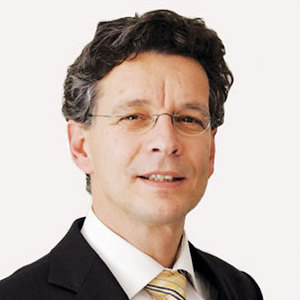Let's Go For Simplicity

November 24, 2013
BY Rob Vierhout
At every event I have been to where the European Union sustainability certification policy is discussed, the level of agreement amazes me. Market operators and those who do the independent auditing agree that what EU regulators have come up with doesn't work well. It seems that it is time to revisit the policy.
Under the EU rules, there are three ways to demonstrate that a biofuel is sustainable. The most common way is by using a voluntary scheme that has been approved by the European Commission. Another option is to prove compliance under the system set by an EU member state. Finally, by producing a biofuel in a country that has a “sustainability agreement” with the EU. As far as the latter is concerned, international agreements, there aren't any (yet) so that certainly cannot lead to complications.
When we go to the national level, the system already becomes less easy to understand. First of all, there is no clarity how many member states have a national system in place. If one asks the European Commission how many there are, it doesn’t know. But it is not relevant, the Commission says: member states have the obligation to make sure (check) that the market operators are complying with the law. So, if the national authorities declare a biofuel sustainable, the Commission is happy too.
Unlike voluntary schemes that are valid in the 28 member states of the EU, national recognition does not mean that a biofuel supplier can use this “ticket of compliance” outside the country where the ticket was issued. At this point the EU law becomes complicated and actually deviant from basic community principles.
Advertisement
One of the main objectives of the European integration process is to take away internal border obstacles to obtain a single, internal market in which the free flow of goods, persons and capital is guaranteed. Harmonizing rules and regulations is one way to get there. The other way is by mutually recognizing what is common practice. Unfortunately that doesn't apply to the national biofuel sustainability schemes: a biofuel recognized as sustainable in Austria (based on the Austrian scheme) cannot automatically be used outside Austria unless the other member state(s) explicitly recognizes the Austrian scheme.
The third way to get biofuel accredited is by using a voluntary scheme, provided the European Commission recognized it. There are now 14 voluntary schemes recognized and some others still under consideration.
The stamp of such a voluntary scheme works like a passport ideally, but unfortunately sometimes you need a different or an additional passport to cross the border. Some schemes cover the full supply chain others don't, sometimes certification applies to only a single feedstock or a single region; some schemes cover all sustainability criteria while other cover them partly; combining two schemes to get enough stamps in your passport might not do the trick because there is no automatic mutual recognition between these schemes.
Germany has added an extra layer of complexity. It has tougher standards than the EU law and this requires a special audit to earn a certificate that is not recognized by the Commission and cannot be used outside Germany.
Advertisement
The next complexity that is going to be added to an already too complex system is when certification is introduced for double counting biofuels. The serious risk of fraud leaves no other option but to go for a track and trace certification, which makes the operation more bureaucratic and expensive. Very likely we will also see a call for a certification scheme for advanced biofuels.
If we want to keep the sustainability certification affordable, understandable, efficient and effective, some sort of harmonization and simplification is key. Adding more schemes and more rules will achieve the opposite of what is intended: the more detailed it gets the more loopholes will be created.
The EU biofuel sustainability certification scheme is the first of its kind globally. It is going to be an important test case for other parts of the agricultural sector. We better get it right if we want to keep using it. Therefore, the Commission should get its act together and rely less on the fact that the industry and the member states have to figure it out.
The review of the Renewable Energy Directive is foreseen next year. It is the best opportunity to go for a harmonization and simplification of the EU policy on the biofuels sustainability certification scheme.
Author: Robert Vierhout
Secretary-general, ePURE
Vierhout@epure.org
Related Stories
SAF Magazine and the Commercial Aviation Alternative Fuels Initiative announced the preliminary agenda for the North American SAF Conference and Expo, being held Sept. 22-24 at the Minneapolis Convention Center in Minneapolis, Minnesota.
President Trump on July 4 signed the “One Big Beautiful Bill Act.” The legislation extends and updates the 45Z credit and revives a tax credit benefiting small biodiesel producers but repeals several other bioenergy-related tax incentives.
International Sustainability & Carbon Certification has announced that Environment and Climate Change Canada has approved ISCC as a certification scheme in line with its sustainability criteria under its Clean Fuel Regulations.
Legislation introduced in the California Senate on June 23 aims to cap the price of Low Carbon Fuel Standard credits as part of a larger effort to overhaul the state’s fuel regulations and mitigate rising gas prices.
The government of Brazil on June 25 announced it will increase the mandatory blend of ethanol in gasoline from 27% to 30% and the mandatory blend of biodiesel in diesel from 14% to 15%, effective Aug. 1.
Upcoming Events










